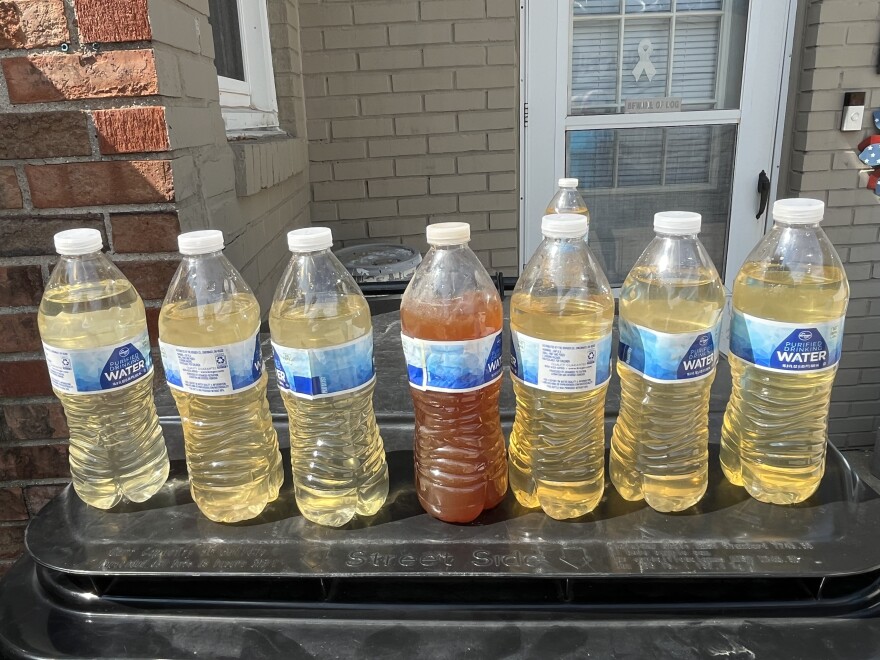Water and sewer are the most basic things a city typically provides. Through a complicated cluster of circumstances, neither of those services is dependable in a subdivision on the east side of Bloomington. And it's not at all clear how that will change.
The Colonial Meadows subdivision off far East Oakland Avenue takes in two streets and more than 80 homes. It was built in the 1960s and '70s. Although it's landlocked by the Central Illinois Regional Airport on one side and an upper end Bloomington subdivision on the other, it's not technically inside city limits.
The water comes from a private well operated by the Colonial Meadows Water Company. Some residents of Colonial Meadows call the water "disgusting."
"There are times it definitely smells very very iron-y and metal," said resident Ryan Johnson, who lives on Priscilla Lane.
He said the water is not fit for man, or well, beast.
"I don't give my dogs the well water," said Johnson.
The color is off, too — sometimes way off — ranging from bilious yellow to cloudy brown tomato. Some days you can't see through it. One woman said she just can't stand taking a bath in that water. She showers instead.
Resident Eli Phillips said you shouldn't wash clothes in it if you want them to stay the same color. Even boiling doesn't help the taste much. He said his water tastes "stale."
"You can put ice in it, but to me it just tastes different," said Phillips.
A lot of people buy water elsewhere. Resident Brian Chesnut said that makes it easier to deal with periodic boil orders.
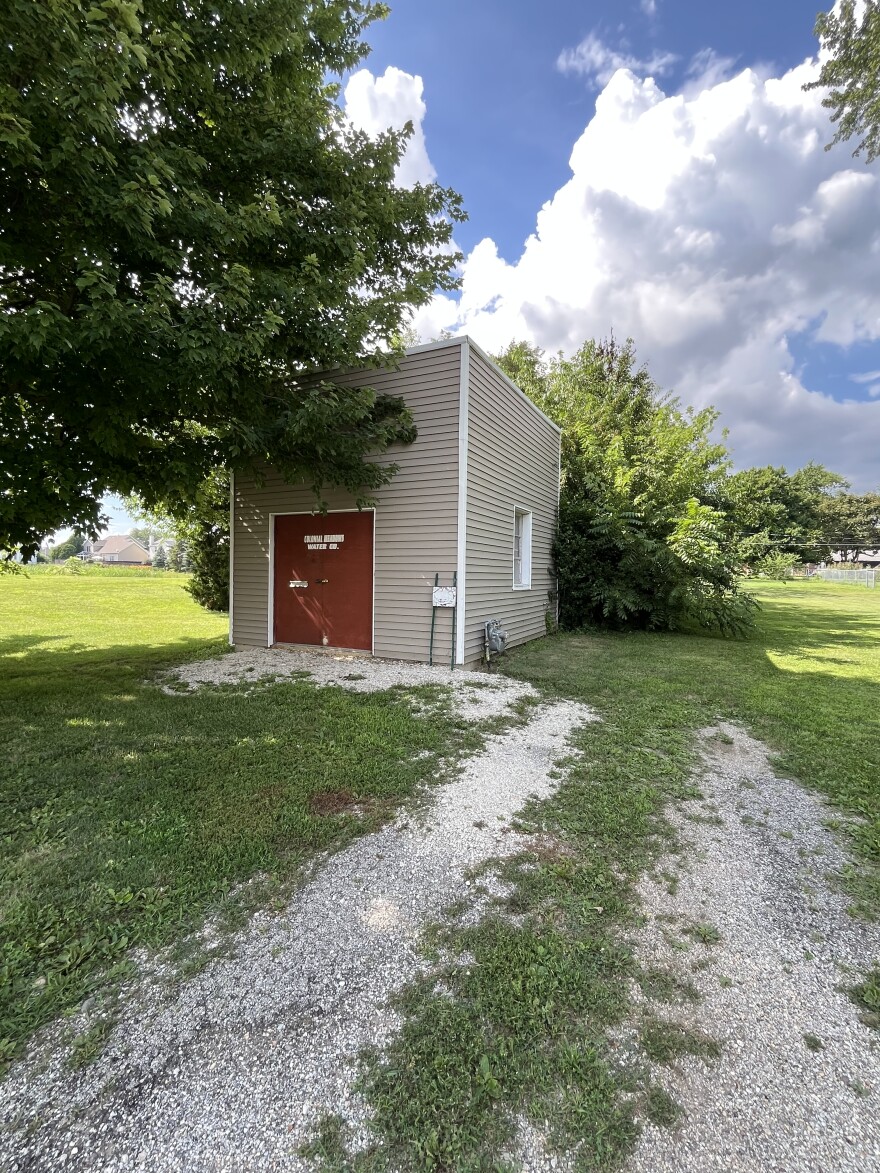
“Initially, we were living with it and then we got wise and started getting the water dispenser, the big 5-gallon jugs. You get them at Jewel. And that takes care of our drinking water," said Chesnut.
Still others have water trucked in. Eli Phillips said he didn't know about these issues when he arrived at Colonial Meadows two years ago.
"It's not something you notice right when you move into a community, look out for water trucks. Look out for this. It was very unexpected," said Phillips.
The Colonial Meadows Water Company has been sus for a long time. Illinois Pollution Control Board records showed an on-again off-again presence for years on both the Environmental Register and Critical Review lists. There have been missed or failed tests in a variety of categories.
David Smith and his family owned the well and the pipes to houses from the start of the subdivision. McLean County Board member Corey Beirne’s district includes Colonial Meadows. Beirne said David Smith died two to three years ago.
"He left it to an individual that has been running it. Unfortunately, this person is not a water professional or a utility professional and has been in a bit over his head and is unfortunately in an unsustainable spot right now, just can't meet the needs of the community," said Beirne.
Beirne said the water company is not a robust system at all. There's no website to make payments, nor even consistent billing.
"Occasionally, residents will get notices taped to their doors. Sometimes that's monthly. Sometimes it's every three months," he said. "I've been told sometimes it's closer to once a year. And people are expected to send in their $35 monthly payment to this particular address. Unfortunately, since there's no oversight on that, not a lot of folks have done that."
Beirne said revenue hasn't been steady enough to support the service for several years. Resident Ryan Johnson said some residents have told him they don't pay because they're not getting much in return.
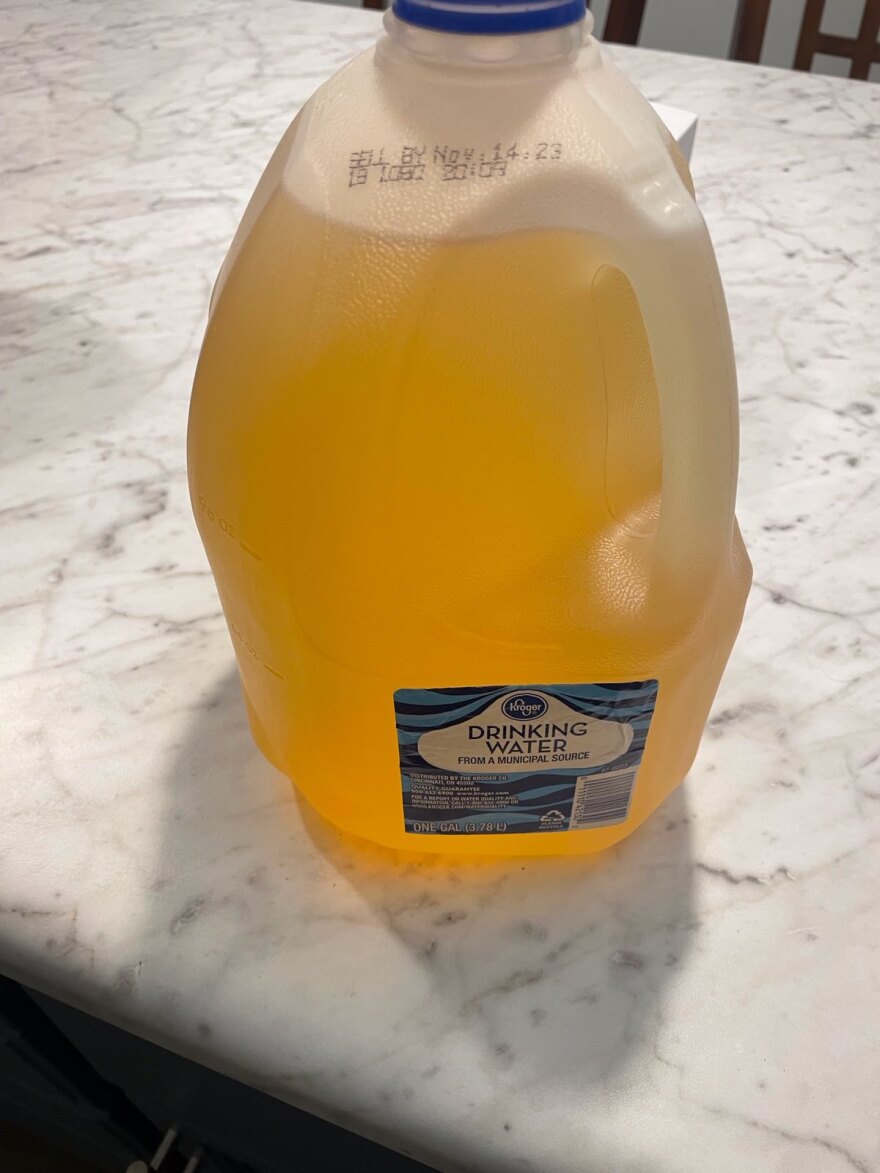
"They were trying to sell the well to someone who has more resources to do those things," said Johnson. "I believe they had a buyer at one point, but the company who runs a bunch of wells like this, got bought out and the company that bought them out said, ‘Oh, we don't do neighborhoods that are smaller than X amount of people or homes’ — and we were like 10 under, or something crazy."
Johnson said last November two line ruptures took out water service to the entire subdivision for several days.
"Are we going to get in a situation where, you know, these systems are old, lines are breaking. The well is belly up. They can't afford to fix it. Are we just on our own? How do we get water? Every human deserves clean drinking water," said Johnson.
In a sense, Colonial Meadows is an orphan.
"It's all kind of cascaded and become a pretty significant crisis. And unfortunately there [are] residents of 86 homes with a Bloomington address that are suffering pretty hard with a really, really bad water system," said Beirne.
A call to Jim Bass, the lawyer for the owner of the water company, has not been returned.
It's not just the water
Remember, sewer is also an issue. There aren't any. The entire subdivision is on individual home septic systems.
The McLean County Health Department said the average age of septic systems at Colonial Meadows is 44 years. Records showed the oldest system still there went in 63 years ago.
Tim Ervin is the director of the Bloomington-Normal Water Reclamation District [BNWRD] that handles community effluvia. Ervin said septics typically last between 20 and 70 years, depending on how well maintained they are. Many of the ones in the subdivision are close to the limit.
"As septics grow older, they tend not to function as well. Our hope is to bring the sewage, divert it to our system, where we have the equipment to remove a higher amount of contaminants from the sewage," said Ervin.
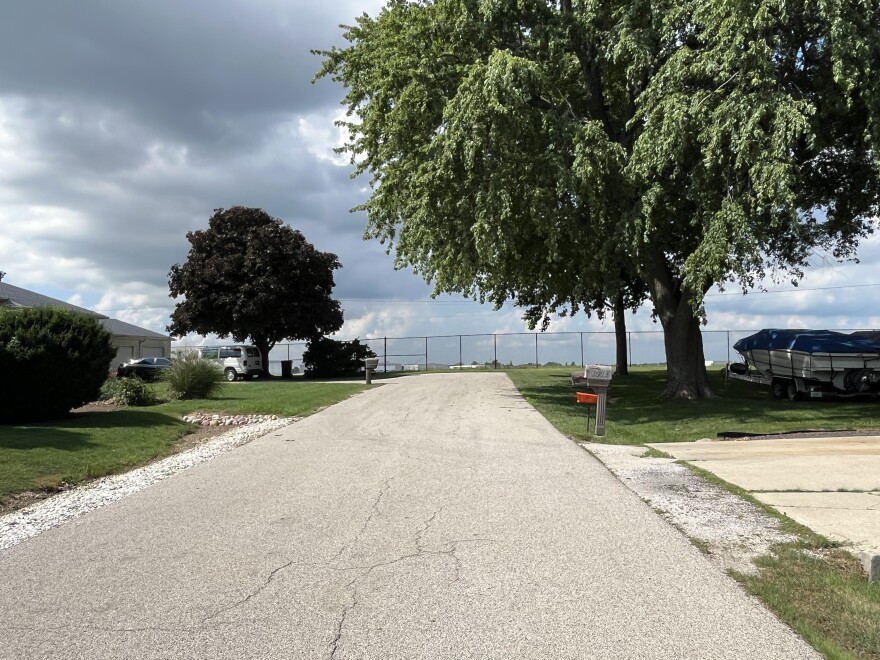
There is a sewer line just south of the subdivision. Ervin said the water reclamation district is looking at expanding its collection system to the homes in Colonial Meadows. The district already has shelled out more than $50,000 on an engineering study and it's in the initial design phase.
He said the subdivision is in a low-lying area and occasionally floods septic tanks on the lower end near East Oakland Avenue. High water tables can hasten septic failures. Ervin said the topography also complicates sewer installation, and may require a sewage lift station.
"That's debatable. I know we've looked at estimates where we would need a lift station, but gravity is always preferable because it's one less structure to maintain. So, we're doing everything we can to drop in a gravity system," said Ervin.
Who pays?
Sewer lines and mains could cost $2-4 million, he said, though if a lift station is needed, it would be more. Ervin said the jury is still out on that. Who pays? Ervin is hoping the residents won't have to. He's seeking grant money from a fund for unsewered communities.
"We feel we're in a very good situation because of the number of septics, but also because we're targeting our census collection information. Some of the information we're getting, they're at lower income levels so we're hoping to use those lower income levels to get additional grant funding," said Ervin.
Beirne said he and two other county board members recently spent a weekend tromping around Colonial Meadows getting income data from residents so they could meet a deadline.
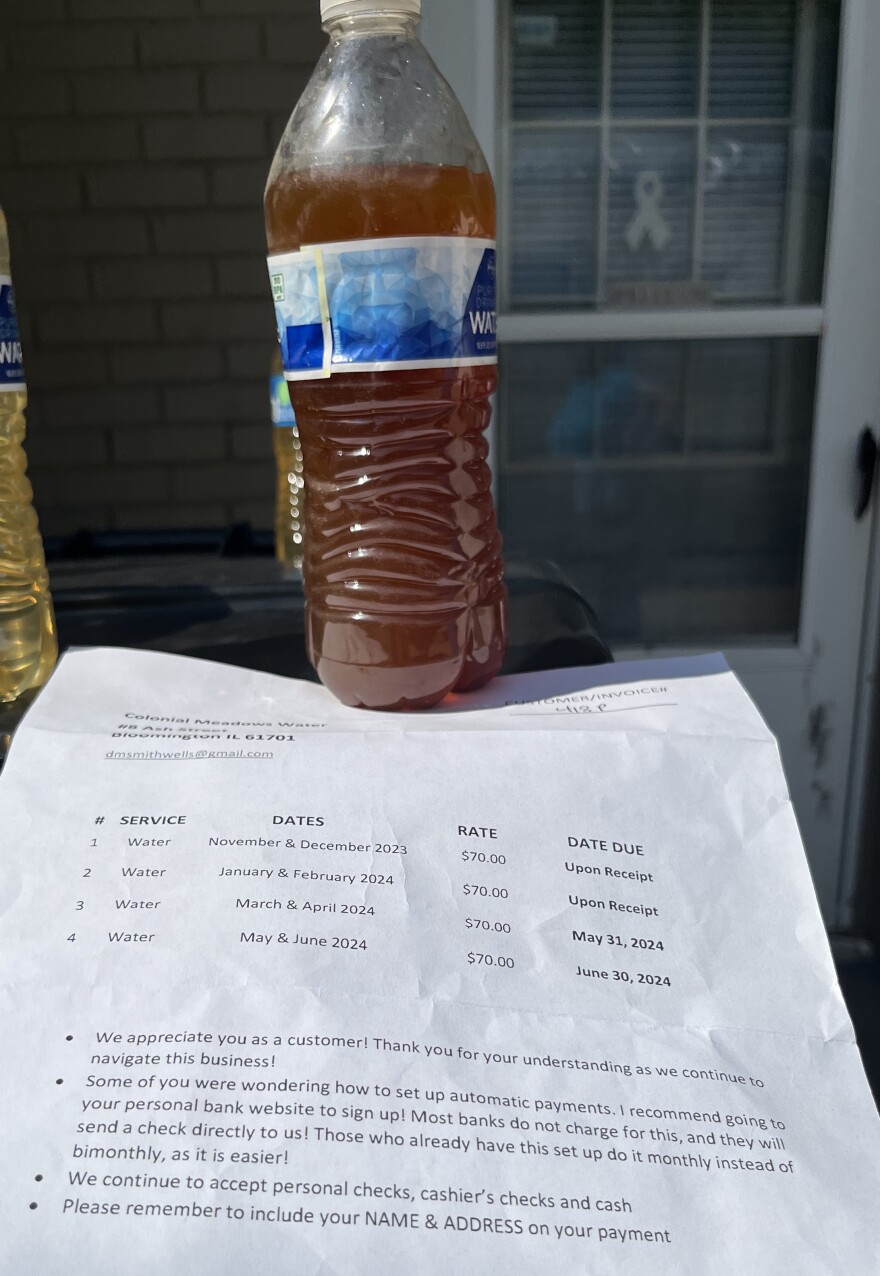
Ervin said BNWRD started looking at clusters of septic systems about 2 1/2 years ago when it was starting a modernization program. He said first up was the Clearview Sanitary District on U.S. 51 South in Bloomington. BNWRD is well under way to building out that sewer system.
The district also will clean up a private waste treatment lagoon in the Clearview District. He said BNWRD eventually will convert that lagoon into a drainage retention area for surge runoff. The Colonial Meadows subdivision is the next largest concentration of septic systems in the Twin Cities. Other areas BNWRD would look at converting over the long term are South Rt. 51 near the Meadows mobile home Park. Bloomington Heights, Deer Ridge and other areas in the county that are close to existing BNWRD sewers.
Ervin said he hopes to have the Colonial Meadows sewer proposal shovel-ready by the end of the year. The grant application goes in this fall, and he hopes construction can start in the spring.
Beirne said the sewer lines have to go in before anything else can be done, because they go deeper than water lines.
Which brings us back to water. Beirne said the county doesn't do water systems and hasn't been able to identify a revenue source to fund a fix.
"All things being equal, I think the city annexing that neighborhood and putting it on water, sewer, garbage all the municipal services like their neighbors right behind them have, I think that would be an ideal situation and that is really one of the only realistic options to get there," said Beirne.
The city doesn't want to do that. City Manager Jeff Jurgens said he thinks it would be cost prohibitive.
"It is not an area that we have actively been trying to annex into the city because of the substandard infrastructure," said Jurgens.
Deputy City Manager Sue McLaughlin said it might cost a couple million dollars to extend water mains into the subdivision and run water lines to each house. And there are other issues.
"Their infrastructure is very substandard. Their streets are private streets. We would hardly be able to get our garbage trucks down there. They don't have any sewer there right now. I know BNWRD is working with them on that. So, there are a lot of hurdles to overcome and we're not in a position to do that right now," said McLaughlin.
She said the city is willing to do what it did some years ago when the water company ran into difficulty: provide bulk water connecting to the Colonial Meadows system without individual meters.
Remember though, resident Johnson and Beirne said the water company billing is a mess. Johnson said rates haven't changed in many years.
"I have found out that there are people in the neighborhood who don't pay their water bill, which doesn't help the well, right, maintain it? So, it's not all on the well at all," said Johnson.
Two subdivision line breaks last November, residents said, took out all water service for days. Johnson said the guy who inherited the water company had to use his own money to fix things. He questioned whether bulk water sales from the city would be workable over the long term.
"With the equipment that we have, the lines that we have, I don't know if that would be an actual realistic solution. I'm open to pretty much any solution that would be like, hey, let's get some safe water," said Johnson.
It's also not clear the water company could pay the city for the bulk water.
"They're finding out that this private water system is not going to be able to sustain itself," said McLaughlin.
Stuck in limbo
McLaughlin said the city is in a wait-and-see mode.
"How we left it with the IEPA is let us know what you want to do, what your next steps are and we'll work with you to provide that bulk water," said McLaughlin.
The EPA has not yet responded to a request for information.
If the city were to annex Colonial Meadows, residents would have to pay part of the expense of putting in up-to-date roads and water mains. And they'd have to pay city rates for water. Resident Eli Phillips said that might be difficult.
"I think that's what a lot of people are worried about, extra costs right now. Everybody's trying to afford groceries and everything. I think people don't want to worry about that extra cost. It could be better, but nobody really wants to pay extra right now for it," he said.
Ryan Johnson said the subdivision is apparently "stuck in limbo."
"This has ‘gotta change. This is not OK. There are a decent amount of elderly people in the neighborhood," he said.
Johnson said the people in Colonial Meadows don't live in the middle of nowhere. Bloomington is literally one street over. He said there's no reason they shouldn't have consistent and clean water.

